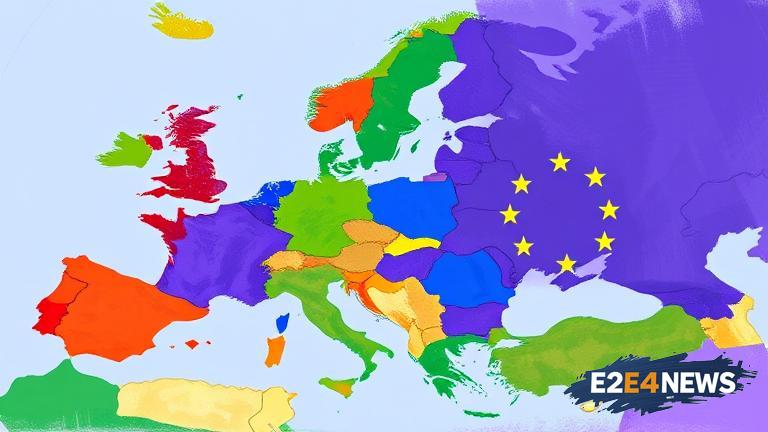The Central European Initiative (CEI) is a regional organization that aims to promote economic growth, cultural exchange, and regional cooperation among its member states. The CEI was established in 1989 and currently has 17 member states, including Albania, Austria, Belarus, Bosnia and Herzegovina, Bulgaria, Croatia, the Czech Republic, Hungary, Italy, Macedonia, Moldova, Montenegro, Poland, Romania, Serbia, Slovakia, and Slovenia. The organization’s main goal is to foster regional cooperation and economic growth by promoting trade, investment, and cultural exchange among its member states. The CEI also provides a platform for its member states to discuss and address common challenges and issues, such as energy security, environmental protection, and migration. In recent years, the CEI has focused on promoting economic growth and competitiveness in the region, particularly through the development of small and medium-sized enterprises (SMEs). The organization has also launched several initiatives to promote cultural exchange and people-to-people contacts among its member states, including programs to support youth mobility and exchange. The CEI has also been actively involved in promoting regional cooperation in the areas of energy, transport, and environmental protection. For example, the organization has launched several initiatives to promote the development of renewable energy sources and to improve energy efficiency in the region. The CEI has also been working to promote regional cooperation in the area of transport, including the development of new transport corridors and the improvement of existing infrastructure. In addition, the organization has been actively involved in promoting environmental protection and sustainable development in the region, including initiatives to reduce pollution and to promote sustainable agriculture. The CEI has also been working to promote regional cooperation in the area of migration, including initiatives to support the integration of migrants and to address the root causes of migration. Overall, the CEI plays an important role in promoting regional cooperation and economic growth in Central Europe, and its activities have a positive impact on the lives of citizens in the region. The organization’s efforts to promote cultural exchange and people-to-people contacts have also helped to foster a sense of community and shared identity among its member states. The CEI’s focus on promoting economic growth and competitiveness has also helped to support the development of SMEs and to create new job opportunities in the region. Furthermore, the organization’s initiatives to promote regional cooperation in the areas of energy, transport, and environmental protection have helped to address common challenges and to promote sustainable development in the region. The CEI’s activities have also been recognized and supported by other international organizations, including the European Union and the United Nations. In conclusion, the Central European Initiative is a unique and important organization that plays a vital role in promoting regional cooperation and economic growth in Central Europe. Its activities have a positive impact on the lives of citizens in the region, and its efforts to promote cultural exchange and people-to-people contacts have helped to foster a sense of community and shared identity among its member states. The CEI’s focus on promoting economic growth and competitiveness has also helped to support the development of SMEs and to create new job opportunities in the region. As the region continues to face new challenges and opportunities, the CEI is well-positioned to play a leading role in promoting regional cooperation and economic growth in Central Europe.
